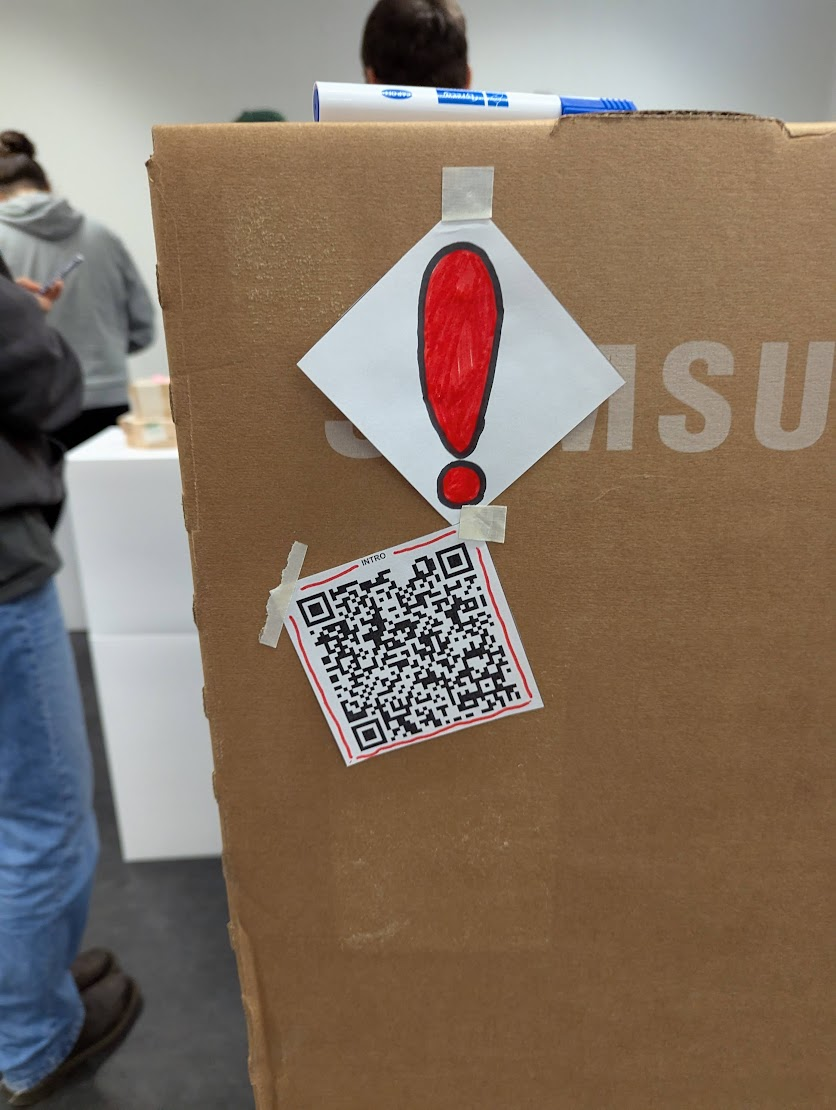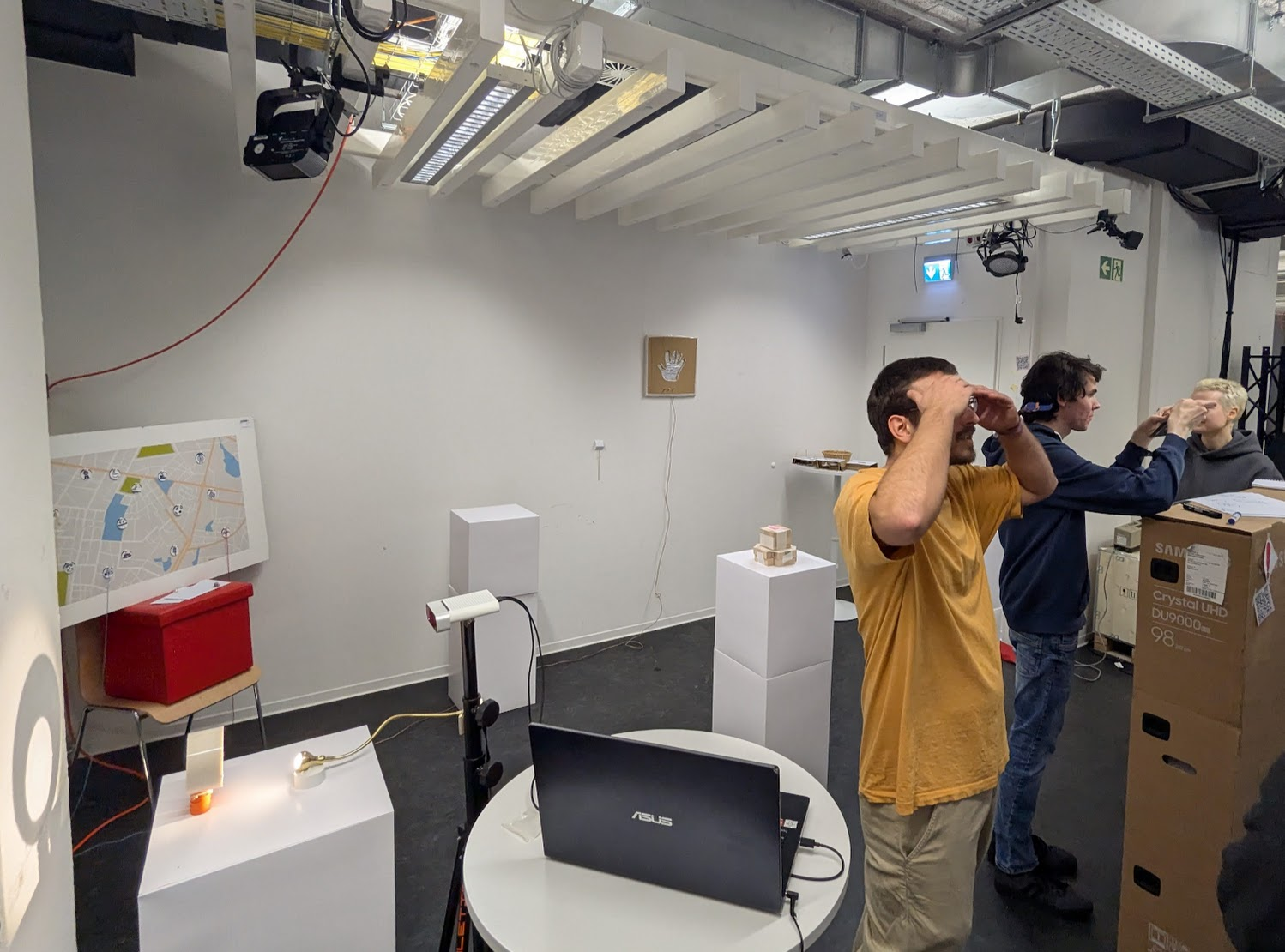![]()
![]()
¶ QR Hub System
A mixed reality app designed for cultural institutions, public entities, and small live experience providers. A one-time purchase interactive guide solution focused on privacy, simplicity and affordable scalability.
¶ Developer
| Stage Persona | Inmate Number | Power | Flavour | Kink | |
|---|---|---|---|---|---|
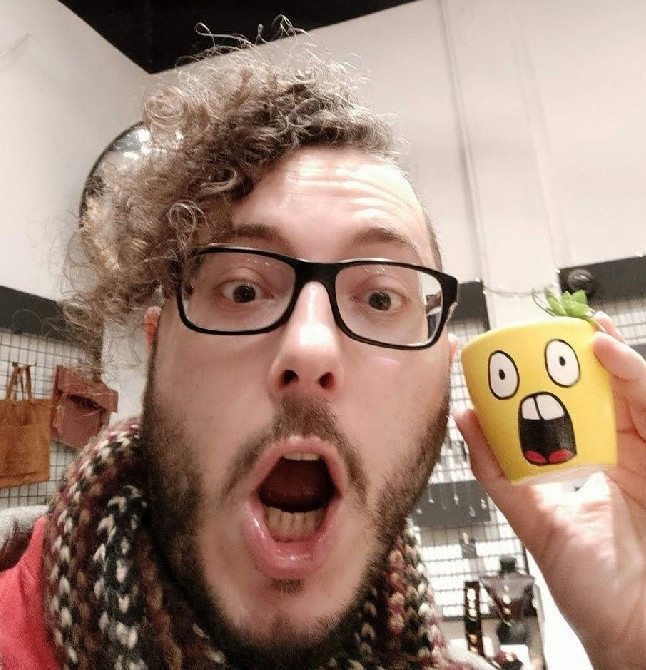 |
Alessandro Piroddi alessandro.piroddi@haw-hamburg.de @ UnPlayableGames |
🪷 xxx3895 | 🎲 Game Design | ☕ Coffee | 🍐 Pears |
¶ Project
| QR Hub System | |
|---|---|
| When | Games Master WiSe 24/25 |
| Why | The Studio |
| Platform | Mobile / ARG |
| Game-Engine | Web App |
| Genre | Escape Room Module |
| Controls | QR Codes + Mobile Devices |
| Language | English |
| Current Version | concept |
¶ The Problem
Apps in the category of Interactive Guide Software (IGS) allow users to access digital content by interacting with real-world objects. These are not a new concept and many commercial solutions already exist. Products like Actionbound and PlayTours are a perfect example, offering a wide array of features – from geo-location to remote data hosting and more. Unfortunately these come at a twofold price:
- many of the advanced functionalities require access to a lot of personal user data
- the app itself is offered as a service rather than a product, and in most cases it features relatively high costs meant for occasional usage by a limited amount of concurrent users
This model is ideal for corporate clients organising something like a work-retreat for employees, but can be very problematic, if not entirely incompatible, with the needs of public services and cultural entities. A common use case for such institutions sees them deal with hundreds of daily interactions made by strangers, which would present serious privacy and scalability challenges. Hence the need for an app offering basic functionality with a focus on privacy and monetised in an affordably scalable way.
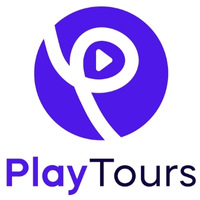 |
¶ QR Hub System
A solution is then a lightweight and privacy-focused app providing event hosts with a toolset of unobtrusive solutions. It is meant to be a premium product that the client can purchase once (or per use-license) and then install and maintain on their own systems.
At its core the QR Hub System is comprised of three main elements:
- a Host app, used to set up the event and its contents
- a Visitor app, running on mobile devices
- a number of physical anchor artifacts, such as QR codes
¶ Host App
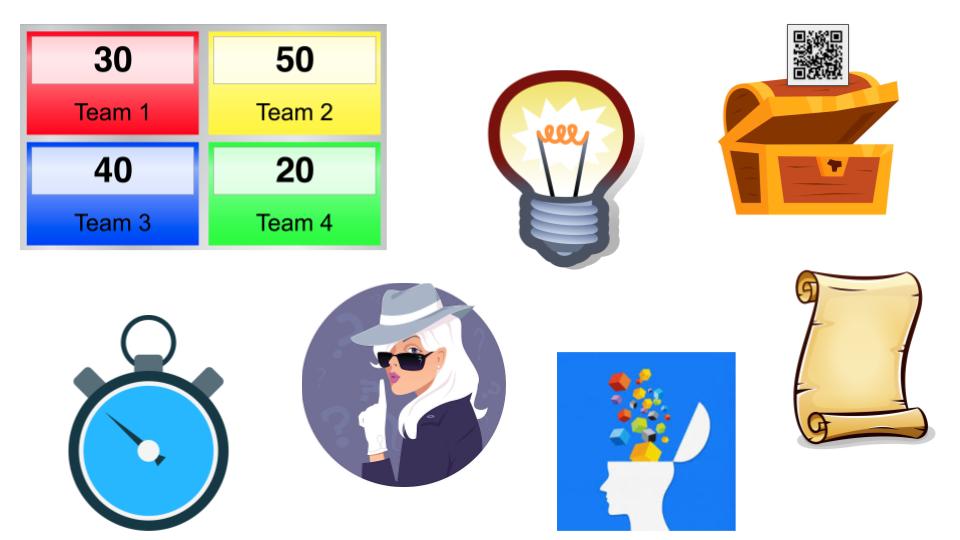 This is a lightweight and minimalist CMS-like system to be hosted by the client institution, probably on the same platform that hosts their official website.
This is a lightweight and minimalist CMS-like system to be hosted by the client institution, probably on the same platform that hosts their official website.
Accessed through a browser, its usage should be very straightforward as the only functions it needs to provide are to:
- host content (text, image, video, audio, quiz)
- setup various types of quiz (right/wrong, multiple-choice, text input, etc)
- generate QR codes linked to hosted content
- track visitor scores and other markers
- manage some settings and options for the interactive experience (starting point, optional game rules, offline usability, etc)
- "compile" the Visitor App for download as a light/online or heavy/offline package
¶ Visitor App
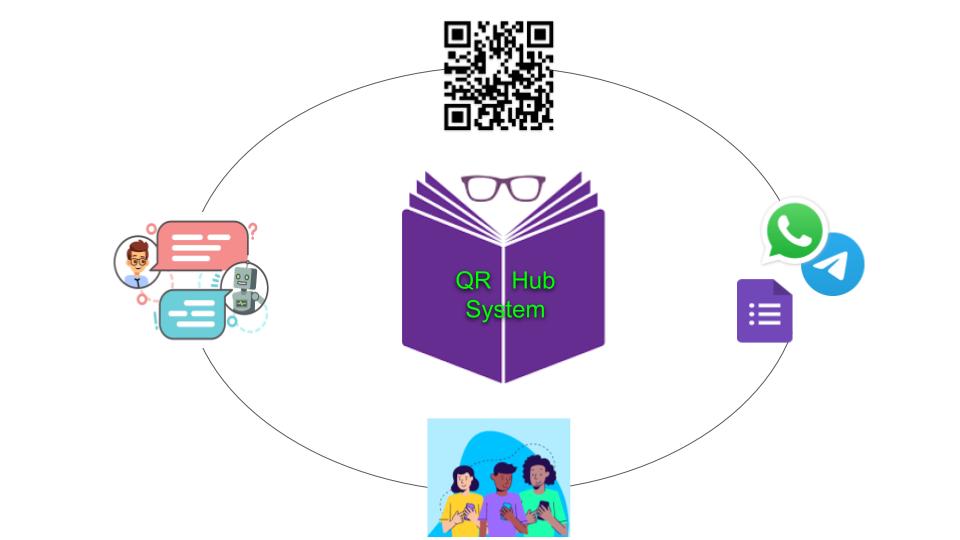 This is a small native or web app the visitor will download on their phone.
This is a small native or web app the visitor will download on their phone.
Depending on how the Host App is setup the download could include all the needed files and media, allowing for offline play, or be smaller but intended for use over an internet connection.
The only permission it will require is the use of the front camera, for purposes of QR code scanning (if set-up by the Host). No personal data will need to be collected. No access to additional phone systems will be required.
The visitor would then be able to interact with the anchors, both digital and physical, set up by the host.
¶ Example Experiences
¶ Puzzle Lock
A simple puzzle could present an initial task for the visitor to accomplish.
In this case, the event host has placed a number of QR codes somewhere within a location:
- all codes but one are clues to solve the puzzle
- one code is the "lock" of the puzzle
By putting together the gathered coues and applying them to the puzzle, the visitor can access the "prize" in the form of victory points, or informations and media, or the lead to a subsequent puzzle.
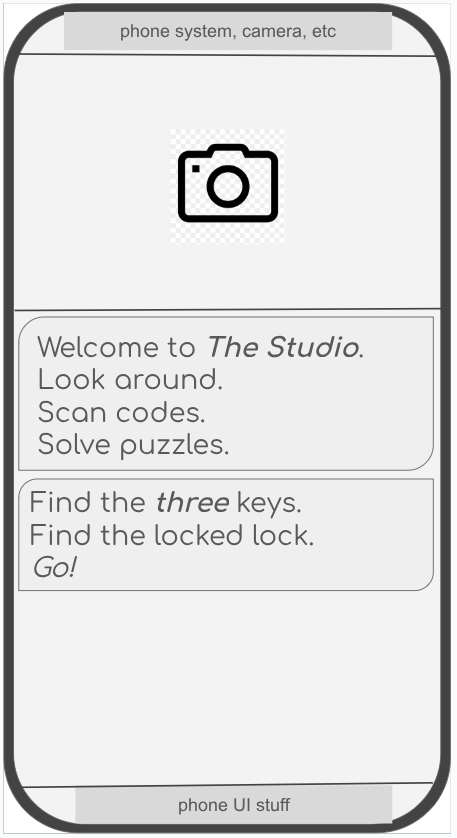
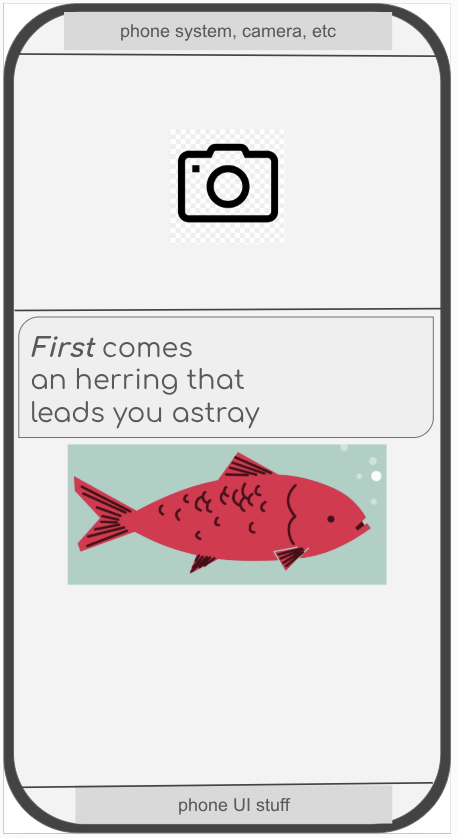
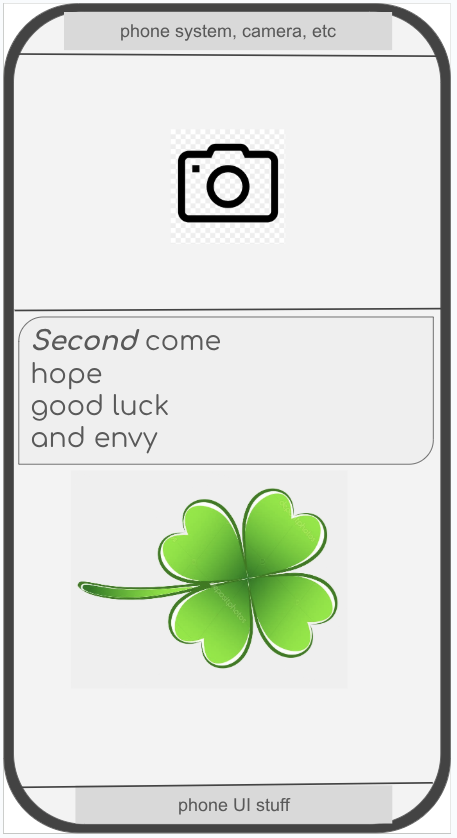
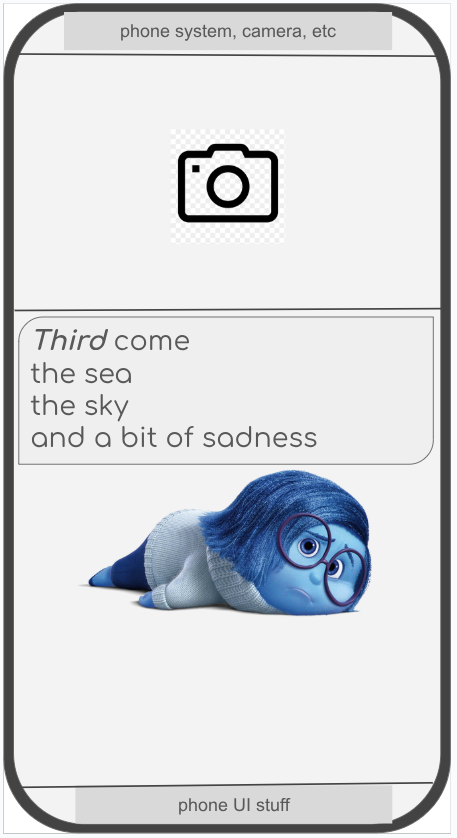
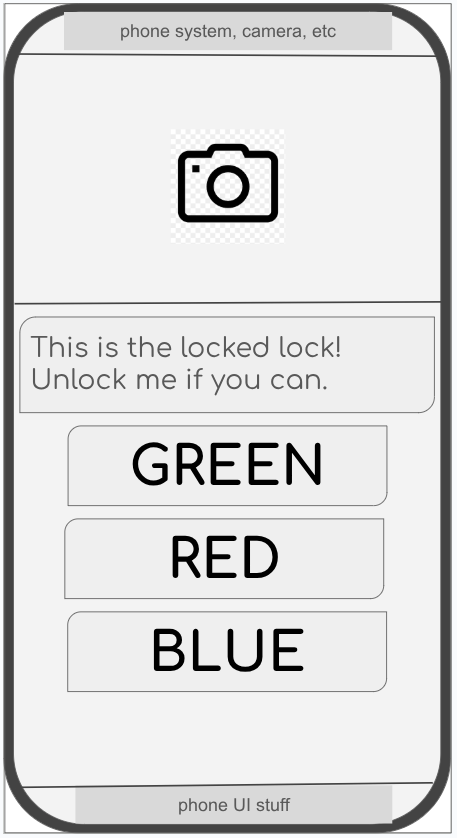
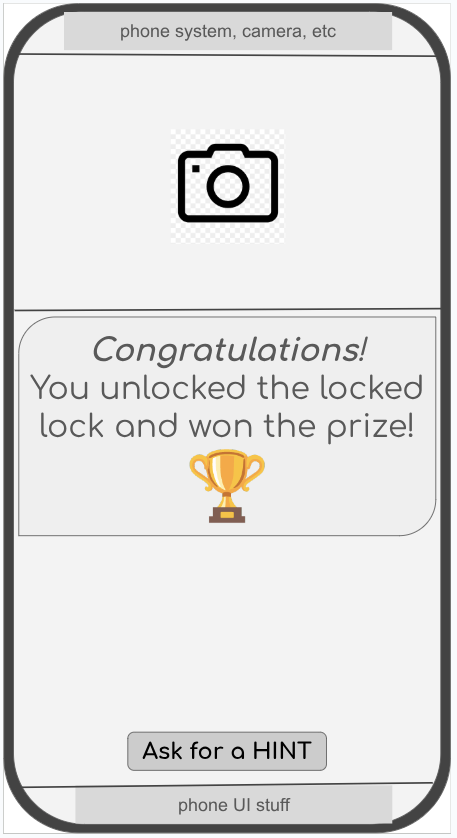
¶ Point of Interest
A code can be placed at a location of interest, like the base of a statue, to deliver information about the place, the object, the situation:
- a text
- an audio
- a video
Or to present a puzzle or task:
- observe or interact with the POI
- answer questions about the POI
- search for info or clues, online or on location, to help you

¶ Scavanger Hunt
A set of QR codes can be hidden in a variety of places within an area. Each code presenting a clue as to the location of the next one in line, maybe locked behind a puzzle of some kind.
Placing the codes near or within points of interest can add a more intentional/cultural layer to the experience.
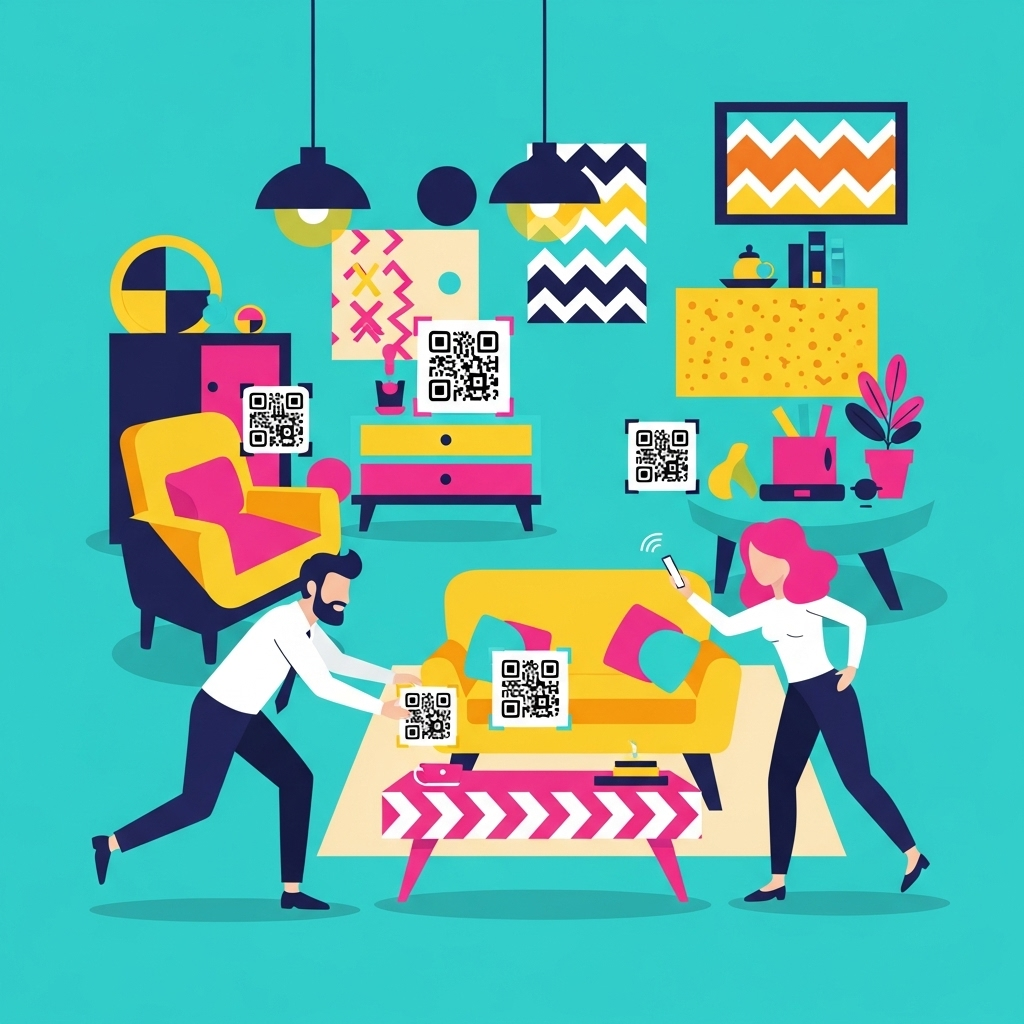
¶ Design Your Own Experience
The simple but solid nature of the QR Hub System allows the host institution a great degree of creativity and flexibility:
-
Experiences can be run on institutional devices or on devices provided by the visitors, as no special setup or access permits are needed, no user profile, no subscription to an external service. Just download of the Visitor app compiled by the Host app. All data stays local to the visitor device or the institution server.
-
Experiences can be designed for offline usage. The Visitor app can be setup to include all the media required, with QR codes used as external triggers to access internal coontent.
-
Experiences can be designed to leverage online usage. The Host app provides the basic tools to keep track of individual Visitor app instances, accounting for their "game state" within the experience: points scored, answers given, clues collected, content unlocked, etc.
This data can then be used to trigger further states, making the experience more interactive: let visitors know when a certain event happens, let them see the overall score of an opponent or a teammate, etc.
It's a simple toolkit that can be used to offer visitors guidance, information, tasks, challenges, immersion, and more.

¶ Prototype
QR Hub System is currently a design concept.
A "paper" prototype was succesfully tested within The Studio course of Winter Semester 2024, in the form of a small Puzzle Lock experience.
It simulated the Visitor side of the app through a no-code solution:
- one visible QR code would lead to a Google Slides slide shaped to look as an app interface, introducing the user to the experience
- further codes, hidden across the room, would lead to more individual slides, each providing a clue for the final lock
- one last code, also hidden, worked as an interactive puzzle-lock by leveraging a simple system of interlinked slides
A small grounp of users egaged with the experience with no need for external guidance or instructions. They ended up hunting for codes, pondering the clues, and eventually using clues and logic to solve the puzzle, which rewarded them with a satisfactory "You Won!" message.
